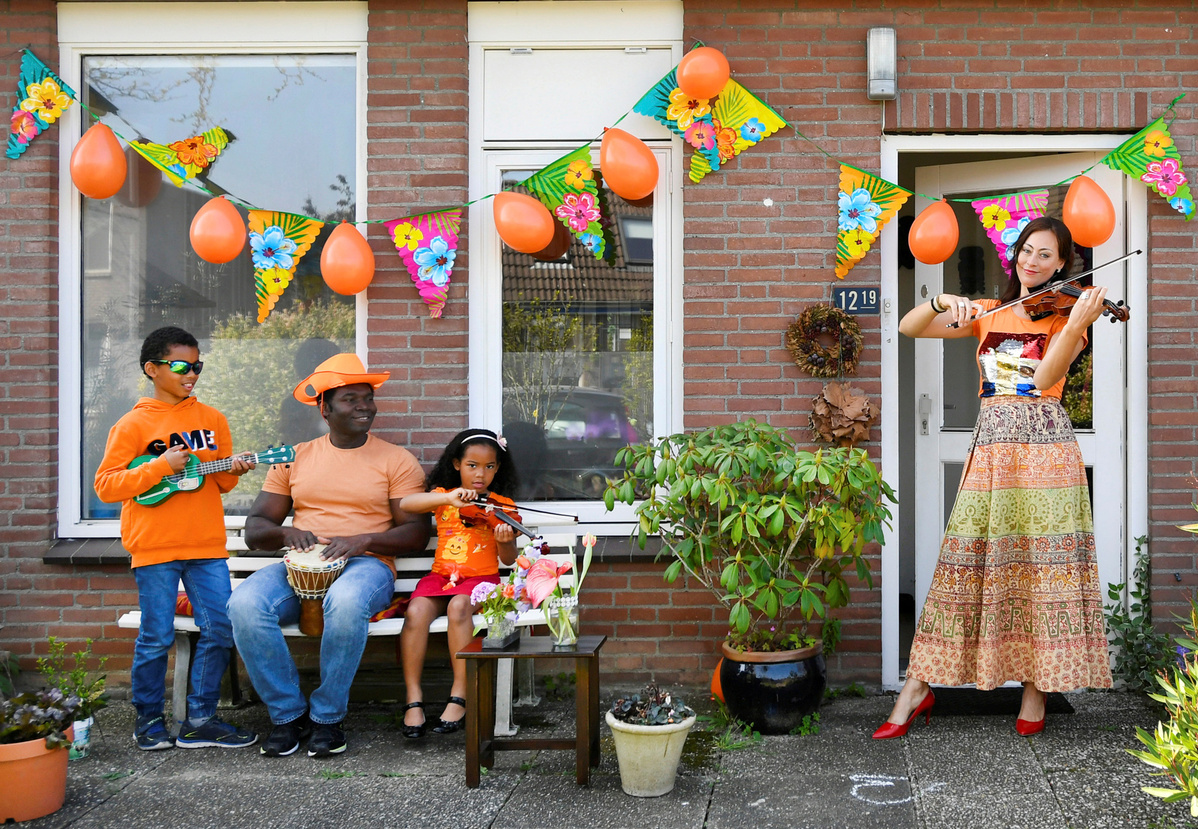Lockdown parenting can lead to two brains with a single thought
By Barry He | China Daily Global | Updated: 2020-05-26 10:10

This period of lockdown has meant that family units around the world, for better or worse, have been forced together in closer proximity than ever before.
With parents working from home on zoom meetings and children waiting for schools to reopen, the dynamic of this pandemic has meant that in many countries, relationships with our loved ones have intensified. This is a mixed blessing, with domestic abuse charities worldwide having reported a spike in calls seeking help. However, new research from Singapore suggests that for parents who do function together happily, there are huge benefits, with children the ultimate beneficiaries.
In a recent study, researchers from Nanyang Technological University, or NTU, in Singapore demonstrated that the mere physical presence of spouses with each other can lead to alterations of the brain activity of both. The research indicated that partners who were physically in close proximity to one other started to match brain wave activity in response to a child's stimulus, such as crying or laughing, as opposed to when each parent heard the stimulus separately. This phenomena was found to take place only in couples, and not in strangers from randomly matched couples in the study.
These changes were most noticeable in the prefrontal cortex, the area of the brain mostly linked with complex and emotional behaviors and states. Researchers utilized a scanning technique called Near-infrared Spectroscopy, an optical procedure which is non-invasive and measures brain activity based on the level of oxygenated and deoxygenated blood present in different parts of the brain. Similar brain wave responses are associated with two people being highly attuned to one another's thoughts and emotional states. Professor Gianluca Esposito, an associate at NTU stated: "Our study indicates that when spouses are physically together, there is greater synchrony in their attentional and cognitive control mechanisms when parenting." The research then goes on to indicate that as the brain responses of parents are shaped by the proximity of spouses, couples who do not spend as much time together may find it much more difficult to see things from each other's point of view and have less efficiently coordinated co-parenting operations. Parental care could therefore be impacted in the long run due to this separation.

It is important to note that the study does not provide a damning report for family units who, for a variety of reasons, are separated and cannot be together. Family units in unique circumstances may find that the best way for them to coexist may be to be separated, for example in amicably divorced couples or families where one parent is working abroad. It is not always possible for families to remain nuclear, but the preliminary study does suggest that there may be some benefit, especially for parents who see both of them being with the child at the same time to be an inefficient use of time.
Couples may find being together stressful, however during this period of lockdown, it is important to note that such research should provide a silver lining in a time when cabin fever is running rife, and family members are stepping on each other's toes. Parenting, while particularly stressful during this unprecedented period, is not an individual task, and not only is it a lighter load when seen as a shared responsibility, but also more potent, with biology on your side.
Barry He is a London-based columnist for China Daily.
























